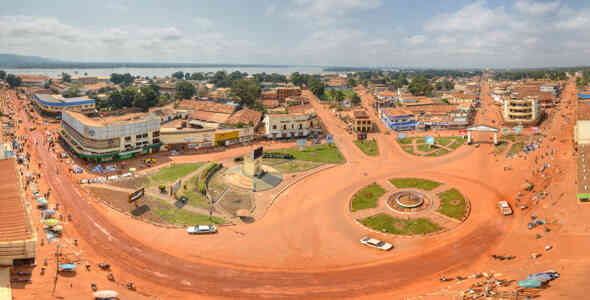The state called the Central African Republic, or CAR, is one of the poorest countries in the world. Poverty and hunger reign here, and military conflicts break out here and there. For most people, there is no hope for a bright future here, and the locals survive as best they can. Some dare to try to move to some more prosperous place, but, unfortunately, not everyone succeeds. The CAR is really a poor country, even by African standards.
Facts about the CAR
- The Central African Republic borders on 6 other countries, and none of its neighbors can be called calm and prosperous state.
- Unlike most other African states, the CAR does not suffer from overpopulation – the population density here is low (interesting facts about Africa).
- The official languages of the CAR are Sango and French, but in fact, many local dialects are used here.
- European researchers first began to be interested in the territories of the modern Central African Republic only in the 19th century.
- The average population density in the CAR is only slightly more than 6 people per square kilometer.
- The capital of the Central African Republic, the city of Bangui, was founded at the end of the 19th century by the French as a fortified fort. Since then, the name of the city has not changed.
- The dictator Bokassa, who once ruled in the Central African Republic, crowned himself as emperor, and renamed the country the Central African Empire. True, the emperor did not rule for long – three years later he was overthrown.
- The average life expectancy in the Central African Republic is very low – about 50 years. The reason for this is simple: constant military conflicts, lack of proper medicine, limited access to clean drinking water, hunger.
- The bowels of the Central African Republic are rich in oil, diamonds and many other valuable minerals. However, the CAR is consistently included in the list of the poorest countries on Earth (interesting facts about diamonds).
- More than half of the population of the CAR are descendants of immigrants from Nigeria and Sudan.
- About 80% of the population of the CAR adhere to Christian denominations, and most of the rest are Muslims. However, religious conflicts and riots are not uncommon in this country.
- The banking sector in the CAR is in its infancy, so bank cards are useless here. You have to pay for everything in cash.
- In rural areas of the Central African Republic, that is, in villages and towns, there are usually no streets. All houses and other buildings are worth anything.
- Local money is called the Central African franc. They are in circulation in the Central African Republic and 5 other countries (interesting facts about money).
- Pygmies, known as one of the shortest peoples in the world, are among the other peoples inhabiting the Central African Republic.
- In the village houses of the local population, a fire for cooking is usually lit in the hearth right inside the hut. At the same time, there are no chimneys, that is, chimneys, and smoke comes out of the cracks between the roof and walls.
- There are practically no paved roads in the Central African Republic. And those that do are usually covered with a layer of sand because no one cleans them.
- There is only one five-star hotel in the whole country. It is located in the capital.
- As in Madagascar, which was also once a French colony, French baguettes are very popular in the CAR (interesting facts about Madagascar).
- The service is popular in the capital of the Central African Republic providing phone calls. Local residents almost never have their own mobile phones, but there are many kiosks on the streets where enterprising citizens give their phone to call everyone for a fee.
- Weapons in the Central African Republic are so common and affordable that local residents willingly exchange them for food.
- There is only one international airport in the Central African Republic, and it is often blocked due to riots and other unrest.
